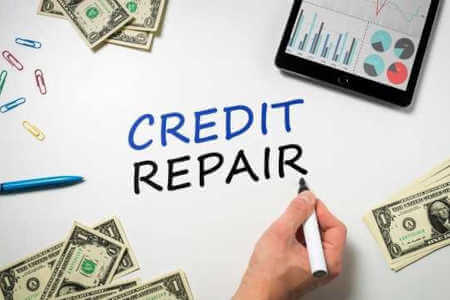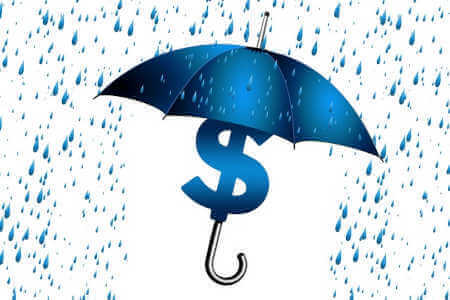Credit Repair Terms
A
B
Bankruptcy
Bankruptcy is a legal process overseen by federal bankruptcy courts. A bankruptcy may help individuals repay or eliminate all or
part of their debt. Bankruptcies have serious and long-term effects on an individual’s credit and remain on a credit report for 7-10 years.
Chapter 13 bankruptcy
Chapter 13 bankruptcy is for individuals who have regular income and would like to pay all or part of their debts in installments over a period of time and to discharge some debts that are not paid.
C
Charge Off
A Charge Off occurs when a lender, generally for tax purposes declares that an amount of debt is unlikely to be collected. This can
happen when a person becomes severely delinquent in repaying a debt. The lender then reports to the consumer reporting agencies that it has taken a loss, (also known as a “write-off”), but the borrower is still responsible for paying back the debt.
Credit file
A credit file is your credit record at a consumer reporting agency. This file may include your name, address, Social Security Number, credit history, inquiries, collection records, and public record bankruptcy filings, if any.
Credit inquiries
When you apply for credit, you are authorizing lenders to ask or “inquire” for a copy of your credit report from one or several consumer reporting agencies (Equifax, Experian, and TransUnion). Inquiries made by lenders are listed on your credit report.
Credit Score
A credit score is a snapshot of the contents of your credit report. It is a three
digit number, generally between 300 and 850, that allows lenders evaluate
your credit worthiness based on how you have managed debt and the
repayment of credit in the past.
Credit report
A Credit report is a detailed report of an individual’s credit history that is prepared by a consumer reporting agency and stored in an individual’s credit file. This credit report is then used by a lender when making credit decisions. Things a lender may find in a credit report include the person’s name, address, credit history, inquiries, collection records, and public record bankruptcy filings.
Credit risk
Credit risk is the likelihood that an individual will pay their credit obligations as agreed. A borrower who is
more likely to pay as agreed pose less risk to creditors and lenders.
Credit Utilization
Credit utilization considers the amount you owe compared to how much credit you have available. Research shows that people who use a high percentage of their available credit limits are more likely to have trouble making some payments now or in the near future, compared to people using a lower level of available credit.
Consumer Reporting Agency (CRA)
A Consumer Reporting Agency is an organization that assembles or evaluates consumer credit information for the purpose of providing those reports to third parties. The three nationwide consumer reporting companies, often also referred to as credit bureaus are Equifax, TransUnion, and Experian.
Credit history
A credit history is a record of a person’s credit accounts and activities, including how the person has repaid credit obligations in the
past.
D
Debt Ratio
Debt ratio is an analysis of an applicant's ability to repay a loan based on the proportion of his or her monthly debt to monthly income. The debt-to-income ratio is calculated as (monthly debt payments divided by monthly gross or net income).
The higher the debt ratio, the less likely the applicant has the ability to repay the loan.
The lower the debt ratio, the greater the chance of repayment.
Default
A Default occurs when a debtor (or borrower) is unable or unwilling to meet the legal obligation of debt repayment. Usually, an
account is considered in “default” after being delinquent for several consecutive 30-day billing cycles.
Delinquent
A borrower is considered delinquent for failure to deliver even the minimum payment on a loan or debt payment on or before the due date. Since most lenders have monthly payment cycles, they usually refer to such accounts as 30-, 60-, 90- or 120-day delinquent.
E
F
Fraud alert
A fraud alert protects your credit file and your identity by requiring creditors who check your credit report to take steps to verify your identity before opening a new account, issuing an additional card, or increasing the credit limit on an existing account based on a consumer’s request.
G
H
Hard inquiry
Hard inquiries are the credit checks made when applied for an auto loan, mortgage, credit card, or other types of loans. Each of these types of credit checks counts as a single inquiry. One exception occurs when you are “rate shopping”. All hard inquiries within a reasonable shopping period for an auto, student loan, or mortgage are counted as a single inquiry. Hard Inquiries by creditors remain on your credit report for two years.
I
Installment debt
Installment debt is a one time loan, taken out for a specific purpose and paid back at regular intervals over a specified period. The lender, sets up a repayment schedule. The fees and interest rate are determined in advance by the lender and calculated into the repayment schedule. Examples of installment debt include most mortgages and auto loans. Installment debt is sometimes referred to as an "installment account", "installment credit" or an "installment loan".
J
K
L
M
N
O
P
Paid collection
A paid collection is an account that went into collections because it was past due and then was paid.
Q
R
Revolving credit/debt
A revolving credit is a line of credit that the borrower can repeatedly use up to their credit limit without without having to reapply every time credit is used. Credit cards are the most common type of revolving account. Other types include department store cards and home equity lines of credit.
S
Secured Credit
This type of credit can be revolving or installment credit. In this type of credit
arrangement the lender will ask you to provide them with something of value
(collateral) as a promise to repay your debt.
Security freeze
Placing a "security freeze" on your credit report prevents new creditors from accessing your credit file. It also stops identity thieves from opening new accounts in your name. A Security freeze will stay in place until you lift the freeze.
Soft inquiry
Soft inquiries are all credit inquiries where your credit is NOT being reviewed by a prospective lender. Inquiries made by businesses with which you did not apply for credit, inquiries from employers, inquiries from lenders for account review purposes for which you already have a credit account, or your own requests to see your credit file, are all considered (soft) and do not affect your credit score.
T
U
Unsecured Credit
This type of credit can be revolving or installment credit. In this type of credit
arrangement the lender will loan you money without any guarantee of
repayment outside of the repayment contract.
Utilization Ratio
The proportion of the balance owed on revolving accounts divided by the available credit limit(s). Utilization is an input used in determining a person’s credit score. Typically, it is the amount of outstanding balances on all credit cards divided by the sum of their credit limits, and it’s expressed as a percentage.
V
W
X
Y
Z


